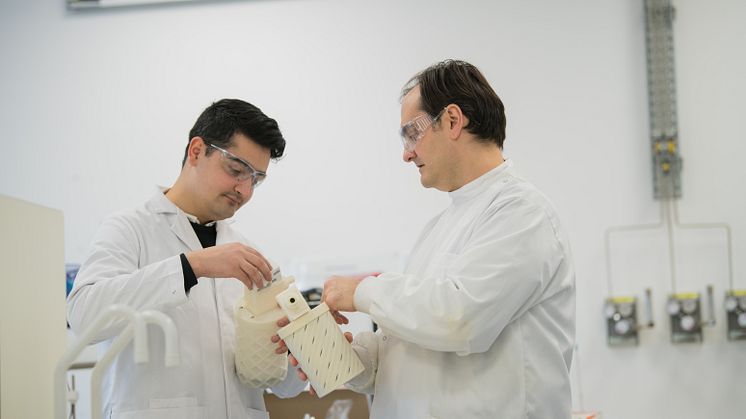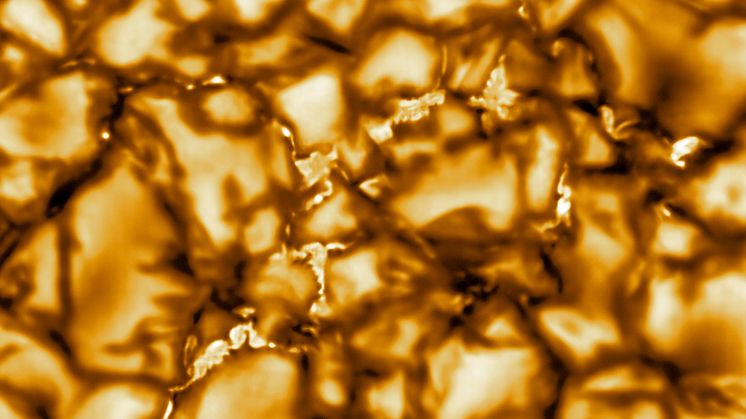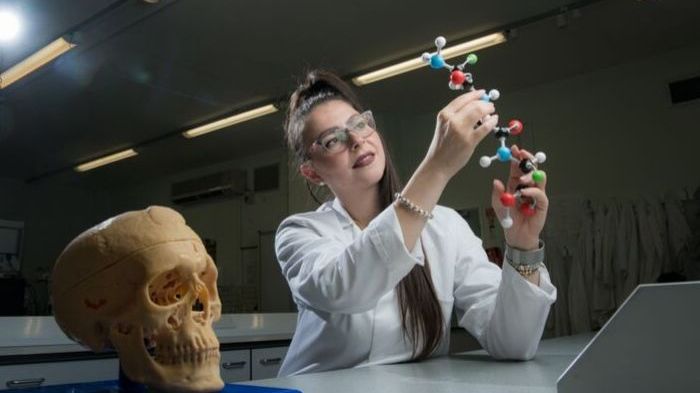Northumbria Professor receives inspirational award from Royal Society of Chemistry
A Professor in Northumbria University’s Department of Applied Sciences has won a top national award from The Royal Society of Chemistry.

A Professor in Northumbria University’s Department of Applied Sciences has won a top national award from The Royal Society of Chemistry.

A team of students selected by the Hub for Biotechnology in the Built Environment, a collaborative initiative between Northumbria and Newcastle universities, will be competing as finalists for their biotech-based design project in the Biodesign Challenge Summit 2020, June 15-19.

A new study has revealed that almost 13,000 tonnes of microfibres, equivalent to two rubbish trucks every day, are being released into European marine environments every year – but this could be reduced by as much as 30% if we made a small change to our laundry habits. The findings have been published by the scientific journal PLOS ONE for World Oceans Day on Monday 8 June.

As the country gears up to commemorate VE Day, academics at Northumbria University are delighted to have played a vital role in the development of a new smartphone app which helps UK military veterans find support services they need; whether that’s health services, jobs or housing.

Northumbria University's NUSTEM project has been recognised for its innovative work in improving diversity in engineering education.

Kingsley Oluchi Ugwuani, PhD researcher at Northumbria University, was consulted on the inclusion of Nigerian English words to the Oxford English Dictionary and writes for The Conversation about the impact the project has had.
An innovative breath collecting device developed by academics at Northumbria University, Newcastle, could revolutionise the way we diagnose diseases, such as the newly emerged strain of coronavirus, COVID-19.

A mechanical engineer from Northumbria University has won a prestigious award after developing an innovative process to turn sea water into clean, safe drinking water, using solar energy.

Dr Genavee Brown, Lecturer in Psychology at Northumbria University, explores how mobile phones are impacting the connection between people when they are together.
The clearest and most detailed images of the Sun have been captured by the largest telescope in the world.

The reprocessing of spent nuclear fuel could become safer and more efficient in future after Northumbria University researchers found a way to modify the structure of molecules to remove radioactive materials. The research is published in the influential Chemistry - A European Journal and is described by its editors as being of 'great significance'.

The ethical implications of machines being able to read human emotions will be explored in a ground-breaking new research project, involving Northumbria University criminologist Dr Diana Miranda.

A project which uses smart devices and big data to improve the lives of elderly people in parts of China has been named the winner of the prestigious £200,000 Newton China Prize 2019.

Northumbria University has become an academic partner of the Institution of Civil Engineers (ICE), the UK’s leading civil engineering professional body.

Researchers have produced the first physics-based quantifiable evidence that thinning ice shelves in Antarctica are causing more ice to flow from the land into the ocean. Their findings have been published in Geophysical Research Letters.

The mystery of who painted a centuries-old artwork, and when, is closer to being revealed thanks to the work of art conservation and forensic science experts from Northumbria University, in Newcastle upon Tyne.

A Lecturer in Forensic Science at Northumbria University, Newcastle, has been awarded more than £1 million to develop a world-leading new technique that will unveil details to help solve investigations relating to unidentified bodies.

Three eminent figures from the fields of politics, physics and fashion, will be awarded honorary degrees from Northumbria University, Newcastle, this summer.

Named after a Celtic goddess of the Sun, SULIS is a UK-led solar science mission, designed to answer fundamental questions about the physics of solar storms.

Northumbria University, Newcastle, is one of just two universities to be newly recognised this year as an Academic Centre of Excellence in Cyber Security Research by the National Cyber Security Centre and the Engineering and Physical Sciences Research Council.
